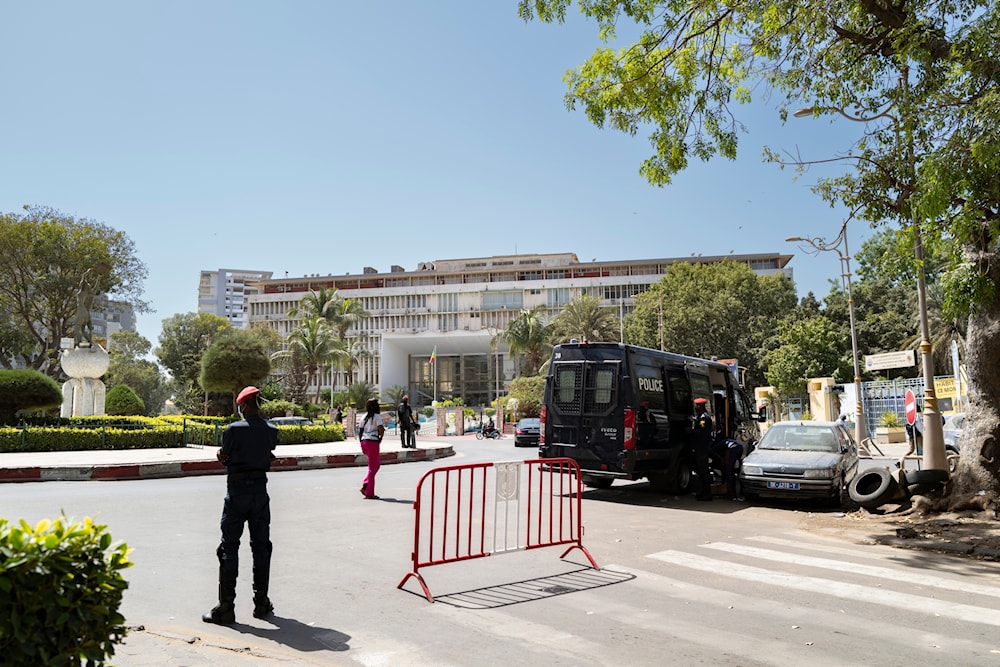Senegal postpones elections till December, President's term extended
The current bill extends current president Macky Sall's term, which was due to end on April 2, after opposition politicians were forcefully removed from the chambers by security forces for trying to block the voting process on the delay.
-

Senegalese police stand guard outside the National Assembly in Dakar, Senegal, Monday, February 5, 2024. (AP)
Following a tedious voting process, Senegal has decided to postpone the presidential elections until December 15 after opposition politicians were forcefully removed from the chambers by security forces for trying to block the voting process on the delay for the elections, initially scheduled for February 25.
Mobile internet access was restricted as protests by opposition supporters grew angry and security forces fired tear gas outside the legislative building. Many were detained in the capital, Dakar, for burning tires in protest against the country's president Macky Sall.
The current bill extends Sall’s term which was due to end on April 2, until a new election, now scheduled for mid-December.
A court petition was filed by two opposition parties to challenge the delay, and for Senegal’s Constitutional Council to direct “the continuation of the electoral process.”
Opposition: This is a coup
Stating just back in July that he does not intend to seek a third term, Sall said an electoral dispute between the parliament and the judiciary concerning the candidacies was the cause of the delay but opposition leaders and candidates rejected it and said it was a “coup.”
The dispute, says Sall, is over the disqualification and the reported dual-nationality of some in a “sufficiently serious and confusing situation.”
Last month, Senegal's Constitutional Council released a list of all presidential candidates for the upcoming elections on February 25. The list constitutes 20 names, but excludes opposition leader Ousmane Sonko, currently incarcerated, and Karim Wade, the son of ex-president Abdoulaye Wade.
Wade served as Prime Minister when his father took office but has been excluded from running for the presidency because of his dual nationality. This is because the law states that candidates must be Senegalese only, aged between 25 and 70, to be viable for the presidency.
Signal cuts and 'subversive messages'
Guy Marius Sagna, an activist and opposition lawmaker, expressed: “We will not accept a constitutional coup in this country. It is up to the people to come out and liberate themselves”.
According to the Ministry of Communication, Telecommunications and Digital Economy, mobile internet services were cut “due to the dissemination of several hateful and subversive messages relayed on social networks in the context of threats and disturbances to public order.”
Meanwhile, the private Walf television network claimed their broadcasting license was revoked after their signal was cut while they broadcast the protests.
In a statement, Amnesty International’s regional office for West and Central Africa said: “The government’s abrupt shutdown of internet access via mobile data and Walf TV’s broadcasting ... constitutes a blatant assault on the right to freedom of expression and press rights protected by Senegal’s constitution”.
Mucahid Durmaz, a senior analyst at global risk consultancy Verisk Maplecroft, says Sall's decision “reflects a sharp democratic decline” in the country.
“The growing democracy deficit not only threatens to tarnish Senegal’s reputation as a beacon of democratic stability in the region but also emboldens anti-democratic practices in West Africa,” he added.

 3 Min Read
3 Min Read








